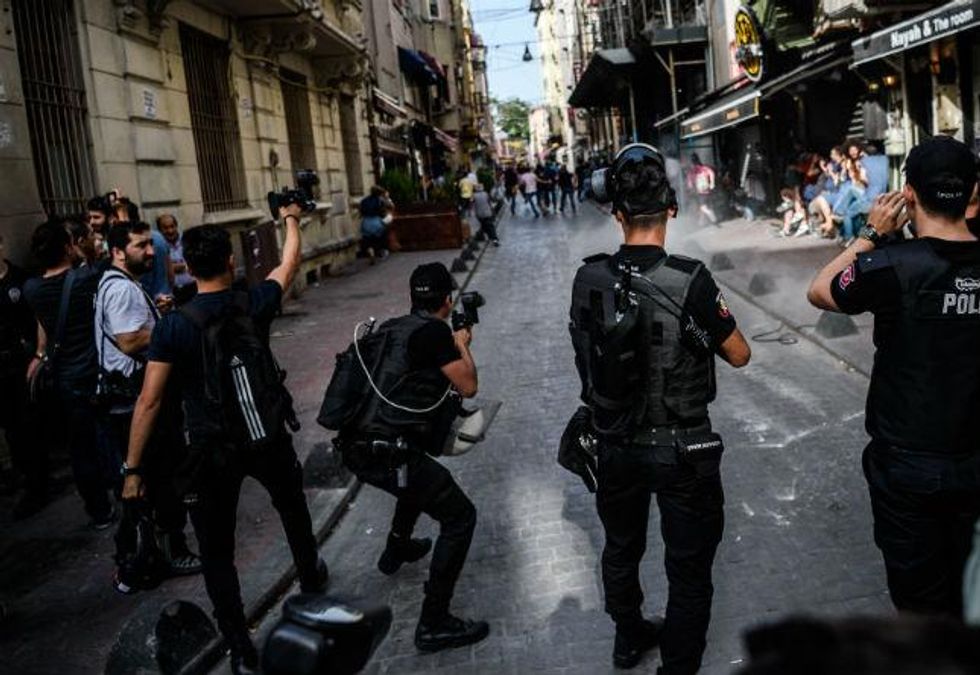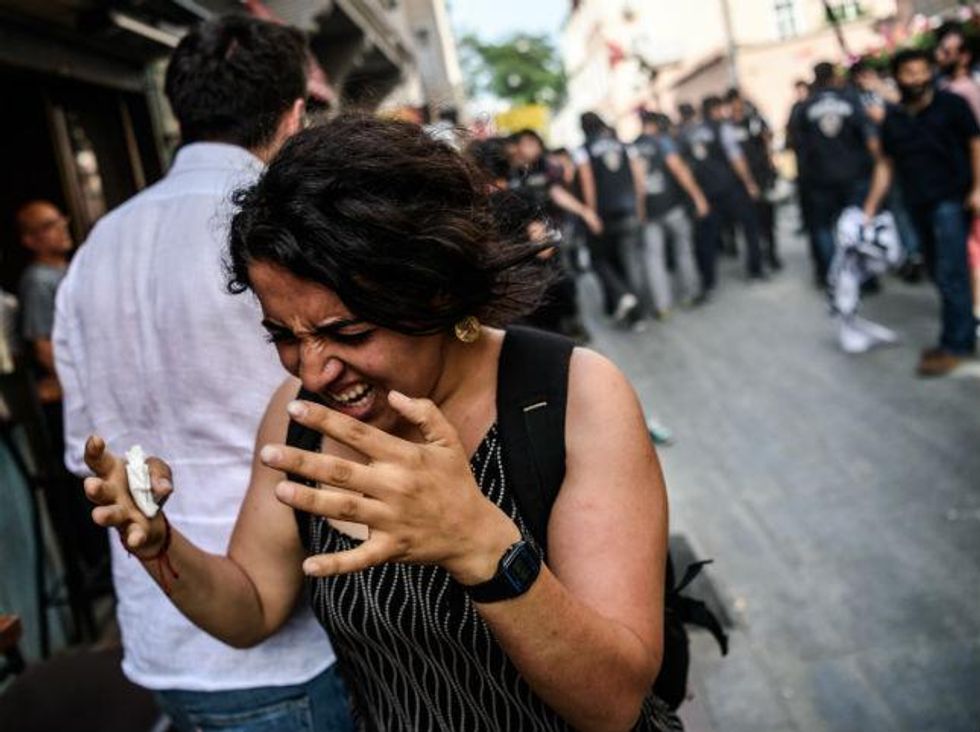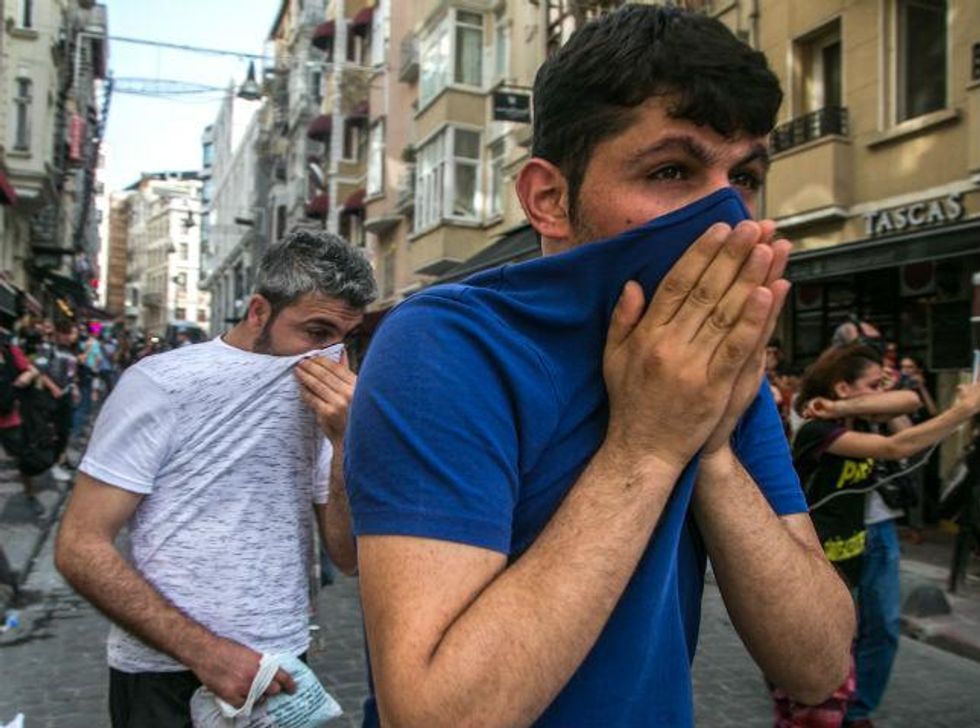News
Narjas Zatat
Jun 20, 2016
Worries continue to grow over Turkey's rising ultra-nationalism impacting human rights in the traditionally secular country, as well as its budding LGBT community.
Turkish president Recep Tayyip Erdoğan hosted an iftar dinner in Istanbul on Sunday, dining with Turkish musician Bülent Ersoy, whose gender reassignment surgery in 1981 caused controversy throughout the world.
Erdoğan’s decision to break the Ramadan fast with a transgender woman could be perceived as a progressive step towards the recognition of LGBT rights.
But in Turkey, it doesn’t quite work like that.
At the same time, a banned LGBT march outside in Istanbul's Taksim Square was being violently suppressed. Around 150 people were teargassed, and some 300 riot police dispersed the rest of the crowd with rubber bullets and water cannons.
According to the authorities LGBT Pride celebrations were cancelled for the first time this year, citing concerns that ultra-nationalist groups would cause trouble because it coincides with Ramadan.
Picture: Gurcan Ozturk/GettyWhile liberal Istanbul has held LGBT parades annually since 2009, this year, like the year that preceded it, was darkened by state violence.
Ebru Kiranci, a spokesperson of the Istanbul LGBTI Solidarity Association, told ABC News:
Football fans can rally in this country whenever they want. We were going to do a peaceful activity.
More: Turkish president Erdogan's attempt to censor a German song about him went horribly wrong
More: As the EU tries to appease Erdogan over the refugee crisis, here’s what’s really happening in Turkey
More: What happened when a journalist asked Turkish president Recep Tayyip Erdogan if he was a dictator
Top 100
The Conversation (0)
















